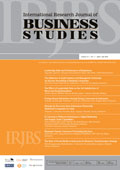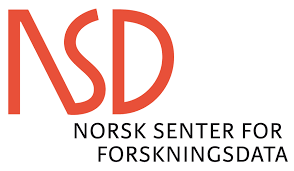Article Metrics |
|
|
Leader Humility and Employees’ Accountability During The Pandemic
Abstract
One way of achieving work effectivity is by making sure employees show accountability. Accountability is becoming even more important during the pandemic, where organizations are forced make their employees work from home. This study aims to identify the process of how leaders and organizations can shape accountability. This research argues that leader humility may enhance employee’s perceived organizational support which eventually shaped employee’s accountability. This study was conducted toward 145 employees from a stateowned company in Jabodebek area via an online survey. This study finds (1) leader humility positively affect employee’s accountability; (2) leader humility positively affects perceived organizational support; (3) perceived organizational support positively affect employee’s accountability; (4) perceived organizational support significantly mediated the relationship between leader humility and accountability. The mediation model predicts 27% of accountability’s variance and is able to provide contribution to accountability’s studies that leader and organizational aspects are essentials in affecting accountability.
Full Text:
References
Andiyasari, A., Matindas, R., & Riantoputra, C. D. (2017). Voice behavior: The role of perceived support and psychological ownership. The South East Asian Journal Of Management, 11(1). doi: 10.21002/seam.v11i1.7735
Bavik, Y., Shaw, J., & Wang, X. (2020). Social support: Multidisciplinary review, synthesis, and future agenda. Academy Of Management Annals, 14(2), 726-758. doi: 10.5465/annals.2016.0148
Blau, P. M. (1964). Exchange and power in social life. New York: Wiley.
Boichenko, O., & Tymchenko, N. (2020). How to reduce the pandemic impact on employees: A guide for company leader. Retrieved from https://www2.deloitte.com/ua/en/pages/human-capital/articles/impact-of-covid-19.html
Brees, J., Sikora, D., & Ferris, G. (2020). Workplace accountabilities: Worthy challenge or potential threat?. Career Development International, 25(5), 517-537. doi: 10.1108/cdi-10-2019-0257
Candra, S., & Saputro, F. (2021). Setahun sejak jokowi serukan bekerja dari rumah. Retrieved from https://republika.co.id/berita/qq095g328/setahun-sejak-jokowi-serukan-bekerja-dari-rumah
Cozby, P., & Bates, S. (2015). Methods in behavioral research (12th ed., p. 82). New York, NY: McGraw-Hill Education.
Cramer, M., & Zaveri, M. (2021). What if you don’t want to go back to the office?. Retrieved from https://www.nytimes.com/2020/05/05/business/pandemic-work-from-home-coronavirus. html
Cropanzano, R., & Mitchell, M. (2005). Social exchange theory: An interdisciplinary review. Journal Of Management, 31(6), 874-900. doi: 10.1177/0149206305279602
Dai, Y., Hou, Y., Wang, C., Zhuang, W., & Liu, Y. (2018). TMX, social loafing, perceived accountability and OCB. The Service Industries Journal, 40(5-6), 394-414. doi: 10.1080/02642069.2018.1500554
Dewi, R. C., & Riantoputra, C. D. (2019). Felt accountability: The role of personality and organizational factors, Journal of Management, vol 38(4),: 312-322
Eisenberger, R., & Stinglhamber, F. (2011). Perceived organizational support: Fostering enthusiastic and productive employees. Washington, D.C: American Psychological Association.
Eisenberger, R., Huntington, R., Hutchison, S., & Sowa, D. (1986). Perceived organizational support. Journal Of Applied Psychology, 71(3), 500-507.
Frink, D. D., & Klimoski, R. J. (1998). Toward a theory of accountability in organizations and human resource management. In G. R. Ferris (Ed.), Research in personnel and human resources management, Vol. 16 (p. 1–51). Elsevier Science/JAI Press.
Frink, D. D., & Klimoski, R. J. (2004). Advancing accountability theory and practice: Introduction to the human resource management review special edition. Human Resource Management Review, 14(1), 1-17. doi: 10.1016/j.hrmr.2004.02.001
Goh, Z., Ilies, R., & Wilson, K. (2015). Supportive supervisors improve employees' daily lives: The role supervisors play in the impact of daily workload on life satisfaction via work–family conflict. Journal Of Vocational Behavior, 89, 65-73. doi: 10.1016/j.jvb.2015.04.009
Hall, A., & Ferris, G. (2011). Accountability and extra-role behavior. Employee Responsibilities And Rights Journal, 23(2), 131-144. doi: 10.1007/s10672-010-9148-9
Han, Y., & Perry, J. (2019). Employee accountability: Development of a multidimensional scale. International Public Management Journal, 23(2), 224-251. doi: 10.1080/10967494.2019.1690606
Hayes, A. (2018). Introduction to mediation, moderation, and conditional process analysis (2nd ed.). New York: Guilford.
Hochwarter, W. A., Kacmar, C. J., & Ferris, G. R. (2003). Accountability at work: An examination of antecedents and consequences. Paper presented at the annual meeting of the Society of Industrial and Organizational Psychology, Orlando, FL
Hu, J., Erdogan, B., Jiang, K., Bauer, T. N., & Liu, S. (2018). Leader humility and team creativity: The role of team information sharing, psychological safety, and power distance. Journal of Applied Psychology, 103(3), 313-323. doi:http://dx.doi.org/10.1037/apl0000277
Ihsanuddin. (2020). Jokowi: Kerja dari rumah, belajar dari rumah, ibadah di rumah perlu digencarkan. Retrieved from https://nasional.kompas.com/read/2020/03/16/15454571/ jokowi-kerja-dari-rumah-belajar-dari-rumah-ibadah-di-rumah-perlu-digencarkan?page=all
Jeung, C., & Yoon, H. (2016). Leader humility and psychological empowerment: Investigating contingencies. Journal Of Managerial Psychology, 31(7), 1122-1136. doi: 10.1108/jmp-07-2015-0270
Kossek, E., & Lee, K. (2017). Work-family conflict and work-life conflict. In Oxford Research Encyclopedia, Business and Management. Oxford: Oxford University Press.
Larson, B., Vroman, S., & Makarius, E. (2021). A guide to managing your (newly) remote workers. Retrieved from https://hbr.org/2020/03/a-guide-to-managing-your-newly-remote-workers
Lin, X., Chen, Z., Tse, H., Wei, W., & Ma, C. (2019). Why and when employees like to speak up more under humble leaders? The roles of personal sense of power and power distance. Journal Of Business Ethics, 158(4), 937-950. doi: 10.1007/s10551-017-3704-2
Lyu, X., & Fan, Y. (2020). Research on the relationship of work family conflict, work engagement and job crafting: A gender perspective. Current Psychology. doi: 10.1007/s12144-020-00705-4
Morris, J., Brotheridge, C., & Urbanski, J. (2005). Bringing humility to leadership: Antecedents and consequences of leader humility. Human Relations, 58(10), 1323-1350. doi: 10.1177/0018726705059929
Netemeyer, R., Boles, J., & McMurrian, R. (1996). Development and validation of work–family conflict and family–work conflict scales. Journal Of Applied Psychology, 81(4), 400-410. doi: 10.1037/0021-9010.81.4.400
Owens, B., Johnson, M., & Mitchell, T. (2013). Expressed humility in organizations: Implications for performance, teams, and leadership. Organization Science, 24(5), 1517-1538. doi: 10.1287/orsc.1120.0795
Podsakoff, P., MacKenzie, S., Lee, J., & Podsakoff, N. (2003). Common method biases in behavioral research: A critical review of the literature and recommended remedies. Journal Of Applied Psychology, 88(5), 879-903. doi: 10.1037/0021-9010.88.5.879
Qian, J., Li, X., Song, B., Wang, B., Wang, M., Chang, S., & Xiong, Y. (2018). Leaders’ expressed humility and followers’ feedback seeking: The mediating effects of perceived image cost and moderating effects of power distance orientation. Frontiers In Psychology, 9. doi: 10.3389/fpsyg.2018.00563
Qian, X., Zhang, M., & Jiang, Q. (2020). Leader humility, and subordinates’ organizational citizenship behavior and withdrawal behavior: Exploring the mediating mechanisms of subordinate’s psychological capital. International Journal Of Environmental Research And Public Health, 17(7), 2544. doi: 10.3390/ijerph17072544
Romzek, B. S. (2014). Accountable public services. In Mark, B., Robert, E. G., & Thomas, S. (Eds), The Oxford handbook of public accountability (ch 19). Oxford: Oxford Univ. Press.
Samian, Riantoputra, C. D., & Budihardjo, A. (2020). Why employees endorse abusive leaders: The role of trust. Human Resource Development International, 24(2), 133-150. doi: 10.1080/13678868.2020.1810475
Sarbu, M. (2018). The role of telecommuting for work-family conflict among German employees. Research In Transportation Economics, 70, 37-51. doi: 10.1016/j.retrec.2018.07.009
Shanock, L., Eisenberger, R., Heggestad, E., Malone, G., Clark, L., & Dunn, A. et al. (2019). Treating employees well: The value of organizational support theory in human resource management. The Psychologist-Manager Journal, 22(3-4), 168-191. doi: 10.1037/mgr0000088
Singh, R., Zhang, Y., Wan, M., & Fouad, N. (2018). Why do women engineers leave the engineering profession? The roles of work-family conflict, occupational commitment, and perceived organizational support. Human Resource Management, 57(4), 901-914. doi: 10.1002/hrm.21900
Steinbauer, R., Renn, R., Taylor, R., & Njoroge, P. (2013). Ethical leadership and followers’ moral judgment: The role of followers’ perceived accountability and self-leadership. Journal Of Business Ethics, 120(3), 381-392. doi: 10.1007/s10551-013-1662-x
Wang, B., Liu, Y., Qian, J., & Parker, S. (2020). Achieving effective remote working during the covid‐19 pandemic: A work design perspective. Applied Psychology, 70(1), 16-59. doi: 10.1111/apps.12290
Wikhamn, W., & Hall, A. (2014). Accountability and satisfaction: Organizational support as a moderator. Journal Of Managerial Psychology, 29(5), 458-471. doi: 10.1108/jmp-07-2011-0022
Yang, J., Zhang, W., & Chen, X. (2019). Why do leaders express humility and how does this matter: A rational choice perspective. Frontiers In Psychology, 10. doi: 10.3389/fpsyg.2019.01925
Yuan, L., Zhang, L., & Tu, Y. (2018). When a leader is seen as too humble. Leadership & Organization Development Journal, 39(4), 468-481. doi: 10.1108/lodj-03-2017-0056
Zheng, J., & Wu, G. (2018). Work-family conflict, perceived organizational support and professional commitment: A mediation mechanism for chinese project professionals. International Journal Of Environmental Research And Public Health, 15(2), 344. doi: 10.3390/ijerph15020344
Zheng, W. (2020). 5 strategies to support your employees through a crisis. Retrieved from https://hbr.org/2020/10/5-strategies-to-support-your-employees-through-a-crisis
Zhong, J., Zhang, L., Li, P., & Zhang, D. (2020). Can leader humility enhance employee wellbeing? The mediating role of employee humility. Leadership & Organization Development Journal, 41(1), 19-36. doi: 10.1108/lodj-03-2019-0124
Zhou, S., Da, S., Guo, H., & Zhang, X. (2018). Work–family conflict and mental health among female employees: A sequential mediation model via negative affect and perceived stress. Frontiers In Psychology, 9. doi: 10.3389/fpsyg.2018.00544
Zhu, A., & Smith, J. (2020). Leadership in a covid-19 world: The power of humility. Retrieved from https://www.spencerstuart.com/leadership-matters/2020/may/leadership-in-a-covid-19-world-the-power-of-humility
Copyright (c) 2021 INTERNATIONAL RESEARCH JOURNAL OF BUSINESS STUDIES
International Research Journal of Business Studies has been covered by the following services: | ||||||||||||||||||||||||
|




















